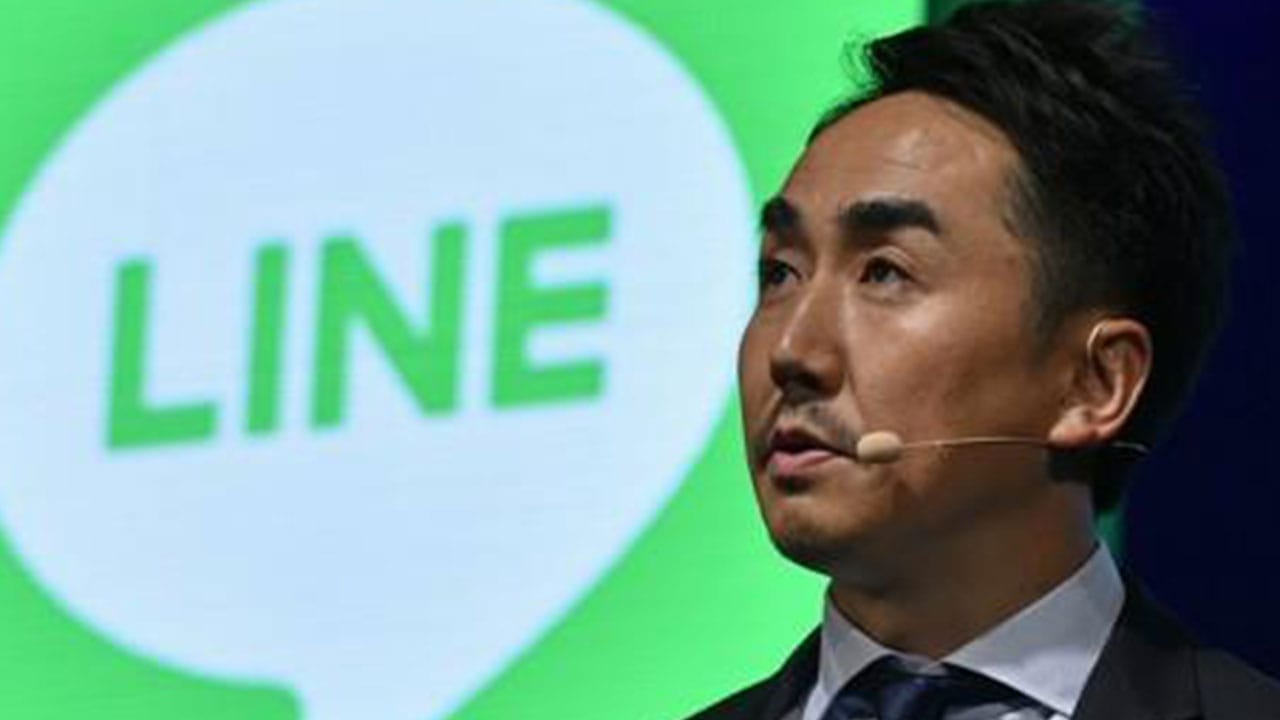Photo: Idezawa Takeshi, chief executive officer of LINE-Yahoo Corporation. Credit: Yonhap.
Japan’s pressure to push out the South Korean owner of the LINE instant messenger service has now become a political and diplomatic issue. (See previous coverage, “Japan Attacks LINE Owner.”) The pressure campaign continued this week as CEO of LINE-Yahoo Corporation Idezawa Takeshi publicly demanded that NHN Corporation, a South Korean company that jointly owns the LINE-Yahoo Corporation with Softbank, sell its stake in the joint venture.
Meanwhile, Shin Jung-ho 신중호, Chief Product Officer and the sole South Korean member of the board of the LINE-Yahoo Corporation, resigned this week. NHN, the parent corporation of the mammoth internet portal site Naver 네이버, issued a statement on May 10 that it was “considering all available options, including sale of our stake.”
On May 10, the Ministry of Science and ICT 과학기술정보통신부 issued a statement that described the Japanese government’s pressure for NHN to sell its stake as “regrettable,” adding: “South Korea’s position is firm that our corporations, including Naver, cannot be subject to any unreasonable measure in relation to their international business operations and investments.” The statement came after several days of equivocation on this issue from the Yoon Suk-yeol 윤석열 administration, which counts an improved relationship with Japan among its major achievements.
The administration’s lack of urgency drew sharp criticism. The Democratic Party 민주당 called the Japanese government’s pressure campaign “a measure better reserved for enemy states” and said the Yoon administration was “watching from the sidelines after capitulating to Japan” on the issues of World War II slave laborers and the discharge of radioactive wastewater from the failed Fukushima Daiichi Nuclear Power Plant into the sea between Korea and Japan.
The conservative press has joined the fray as well. Chosun Ilbo 조선일보, South Korea’s largest newspaper and otherwise a stalwart defender of the Yoon administration, has been the unlikely leader on this issue. The paper’s Tokyo correspondent wrote a special report on May 7, claiming that the Yoon administration was helping the Japanese government sideline the South Korean press.
In the report, Chosun’s Seong Ho-cheol 성호철 said the Japanese government requested a phone call with the Tokyo-based South Korean press to discuss the issue. The Tokyo correspondents of South Korea’s major media outlets declined, requesting instead a press conference where they could ask questions in public. According to Seong, the Japanese government then demanded that South Korea’s Ministry of Foreign Affairs 외교부 directly put them in touch with a South Korean media outlet in Seoul. The Foreign Ministry obliged by facilitating a phone call between Japan’s Ministry of Internal Affairs and Yonhap News 연합뉴스, bypassing the Tokyo-based correspondents’ request for a public press conference.








